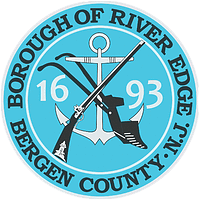Clean Communities
ABOUT CLEAN COMMUNITIES 
NJ Clean Communities Overview
New Jersey Clean Communities is a statewide, comprehensive, litter-abatement program created by the passage of the Clean Communities Act in 1986. The mission is to reduce litter in public places, promote the volunteer cleanup of public lands and sustain a reduction in litter through education. The Act provides a funding source for the program by placing a tax on fifteen categories of businesses that may produce litter-generating products. For more information on the state program visit njclean.org.
Tackling the Litter Problem
What is litter? Litter is solid waste that is out of place. It's the kind of trash found on highways, lakefronts, parks, and school grounds. Litter takes many forms: paper, plastics, metal cans, cigarette butts, glass, food packaging, tires, and graffiti.
Where does litter come from? There are at least seven sources of litter: pedestrians, motorists, overflowing household garbage, overflowing commercial containers, loading docks, construction sites and uncovered trucks. Litter is often blown by the wind until it is trapped somewhere or goes down a storm drain.
Why do people litter? People tend to litter when they think someone else will clean up, when an area is already littered, and when they do not feel a sense of ownership or community pride.
Why is litter a problem? Even small amounts of litter are unsightly, unhealthy, and dangerous. Litter causes blighted landscapes resulting in an increase in taxes and a decrease in tourism and industry; loss of civic pride and morale; and a negative public image. Litter can also cause accidents, especially on roadways, fires and disease in people and animals.
How are we solving the problem? In addition to the efforts of local governments, residents, schools, civic associations, and non-profit organizations are enlisted as volunteers to help with cleanup events. At these cleanup events we offer education to volunteers while they pick up litter, so they become environmental stewards. With education, acts of littering can be changed!
RIVER EDGE
CLEAN COMMUNITIES PROGRAM
River Edge Clean Communities program is part of a statewide strategy to clean and prevent litter on
streets, beaches, waterways, parks, recreation sites and vacant lots.
IMPORTANT LINKS
State NJCC Website: www.njclean.org
State Bag Up NJ Website: www.bagupnj.com
NJDEP Single Use Plastics Website: https://www.nj.gov/dep/plastic-ban-law/
Sign Up for NJCC Newsletter: https://njclean.org/register-for-web-news
NJCC Certification Training: http://www.cpe.rutgers.edu/courses/current/er0400ca.html
CLEANUPS
Help us keep River Edge clean! A variety of volunteer opportunities are available whether you’re a resident, business, civic association, school, or non-profit organization.
Please Note: Volunteers must adhere to the following cleanup guidelines:
- Volunteers must maintain social distance of at least 6 ft. and wear face masks when necessary.
- The number of volunteers must be limited to 10 in any one location.
One Day Cleanup Event – Civic groups, volunteer organizations, churches, and scout troops, as well as residents and businesses, are encouraged to participate in a joint effort to clean up our streets and public properties.
Safety - the safety of our volunteers is important. Please review safety protocols before conducting any cleanup programs and watch the NJCCC safety video:
https://njclean.org/aag-individual-safety-video
EDUCATION
Education is communication in a more complex form. It aims to change the attitudes that cause littering. The basic premise of the New Jersey Clean Communities program is to change habits, so residents do not litter, bring their own reusable bags when shopping, skip the straw, and other sustainable practices. A long-term education program will teach both residents and visitors the ramifications of littering and ways to work together to prevent litter from affecting our state.
Bag Up NJ
On Nov. 4, 2020, Governor Phil Murphy and the New Jersey Legislature enacted the most progressive bag ban law in the country. The law reduces litter and encourages the use of reusable bags by phasing out single-use carryout bags.
The law bans single-use plastic bags, regardless of thickness, at grocery stores and retail establishments, as well as paper bags at grocery stores equal to or larger than 2,500 square feet. It also bans polystyrene foam takeout food containers and other products such as plates, cups, food trays and utensils. As of November 4, 2021, plastic straws will only be available upon request.
The "Bag Up NJ" campaign is the New Jersey Clean Communities Council’s new single use plastic and paper bag ban outreach campaign, which has a simple message: Bring your own reusable bag(s) when you shop.
For more information on the NJ Bag Ban Law, please visit: https://www.nj.gov/dep/plastic-ban-law/
For information on Business Compliance please contact
the New Jersey Business Action Center
https://business.nj.gov/recent/disposable-bag-ban
REPORT ILLEGAL DUMPING
The Problem:
"Public lands all over New Jersey are being used as dumping grounds. Litter, garbage bags, tires, televisions, electronic waste, appliances, yard waste, and construction debris are being dumped and threatening our local environment, animals and public. This dumping detracts from the natural beauty of our public lands; it decreases property value and costs the citizens of New Jersey tax dollars to cleanup." - NJDEP
"There's an app for that!"
The NJDEP offers a free and easy to use app that can be downloaded onto your smartphone device. Click on the link below and start reporting illegal dumping sites in New Jersey.
https://www.stopdumping.nj.gov/instructions.htm
